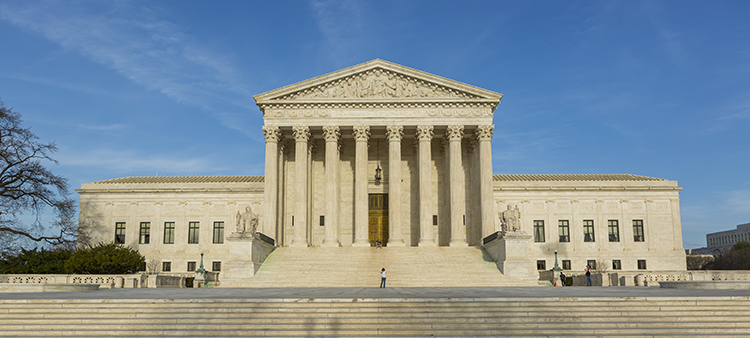The ABA Adjusts Its Lobbying Efforts to Suit a New Climate on Capitol Hill
It did not take long for the seismic impact of the November elections to be felt throughout the federal government and in the public sector, as many programs supported by the ABA and other organizations are now finding themselves under siege. While the Obama administration and members of both political parties in Congress are emphasizing the need to reduce government spending, the Republicans who now control the House of Representatives are calling for immediate, drastic discretionary spending cuts and greater oversight of federal government programs.
But even before the 112th Congress convened in January, the ABA Governmental Affairs Office and its Standing Committee on Governmental Affairs took steps to bolster the association’s lobbying efforts on Capitol Hill in the new political climate.
While many organizations seek to wield influence through financial contributions, the nonpartisan ABA does not have a political action committee and does not contribute to campaigns. The association instead depends on effective advocacy by its leadership, lobbying staff and Grassroots Action Team, a group of ABA members who convey the association’s views to individual legislators through personal contacts. That is also the approach at the annual ABA Day event in Washington, when hundreds of bar leaders go to Capitol Hill for meetings with members of Congress. This year’s event is April 12-14.
For this Congress, the ABA’s lobbying strategy also includes eight expert lobbyists who will work as “advisers” to the Governmental Affairs Committee and the GAO staff. “Drawing from many years of various experiences in the congressional legislative process, we will be providing guidance to help the ABA effectively advocate on the issues the association has chosen for emphasis during the new Congress,” says one of the advisers, Frederick D. McClure, managing partner of the Washington, D.C., office of SNR Denton. McClure was assistant for legislative affairs to President George H.W. Bush, and he later served on the transition team for President George W. Bush.
The ABA’s lobbying efforts in the coming months will focus primarily on a list of legislative priorities that were set in February by the Board of Governors. The list recognizes that budget constraints will make it difficult to increase funding for existing efforts or to establish new programs. The priorities include continuing support for the Legal Services Corp. and other efforts to provide legal services to low-income civilians and service members, improving the criminal justice and immigration systems, protecting the independence of the judiciary, and promoting the rule of law. The association also is continuing efforts to oppose federal regulation of lawyers and enactment of federal changes in the tort system.
THE BIG PICTURE
In other steps to bolster the ABA’s effectiveness in dealing with Congress and federal agencies, the GAO and other association entities are looking at ways to improve the general lobbying process.
First, the GAO staff must adhere to complex federal lobbying disclosure requirements and an executive order issued by President Barack Obama in January 2009 to limit the influence of “special interest” lobbyists. The president’s order covers topics like restrictions on gifts, hiring of former lobbyists, post-employment lobbying, and serving on federal agency boards and commissions.
On a broader level, the Section of Administrative Law and Regulatory Practice is planning to bring recommendations relating to the lobbying process to the ABA’s policymaking House of Delegates in August, when the association holds its annual meeting in Toronto. The recommendations are based on a report from the section’s Task Force on Federal Lobbying Laws, Lobbying Law in the Spotlight: Challenges and Proposed Improvements (PDF).
The report recommends separation of lobbying and political fundraising, more transparency in the reporting of advocacy work by outside firms, and a shift in enforcement of the law from Congress to an executive branch agency.
Correction
Print and early online versions of “Tacking a New Course,” April, should have identified Frederick D. McClure as managing partner of the Washington, D.C., office of SNR Denton.The ABA Journal regrets the error.
Rhonda McMillion is editor of ABA Washington Letter, a Governmental Affairs Office publication. This column is written by the ABA Governmental Affairs Office and discusses ABA advocacy efforts relating to issues being addressed by Congress and the executive branch of the federal government.



